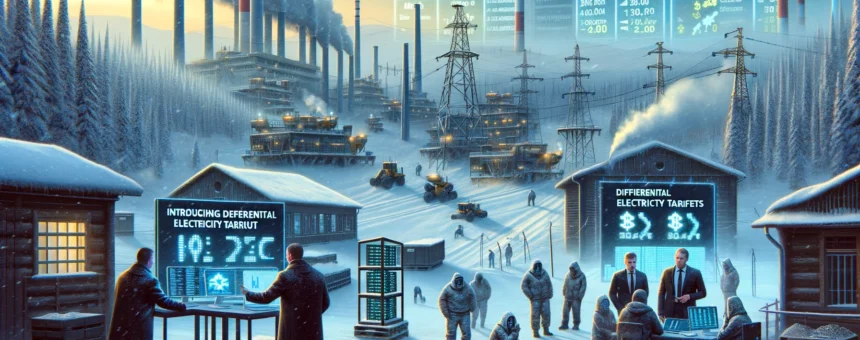Irkutsk Region Introduces Differential Electricity Tariffs Amid Rising Crypto Mining Concerns

The Irkutsk Region has announced the introduction of differentiated electricity tariffs, effective from July 1, 2024. This change, mandated by the Tariff Service of the Irkutsk Region in response to claims from the Federal Antimonopoly Service (FAS), aims to address the region’s significant electricity consumption, exacerbated by the booming cryptocurrency mining industry, according to Interfax-russia.
The new tariff structure divides electricity consumption into three ranges. For urban residents, the first range allows consumption up to 25,000 kWh per month at a rate of 1.58 rubles per kWh. The second range, covering consumption from 25,001 kWh to 25,010 kWh, will cost 2.57 rubles per kWh. Any consumption above 25,010 kWh falls into the third range, with a tariff of 4.9 rubles per kWh.
In rural areas, the rates are slightly lower for the first two ranges: 1.106 rubles per kWh for consumption up to 25,000 kWh, and 1.799 rubles per kWh for the second range, while the third range remains at 4.9 rubles per kWh.
Previously, the Tariff Service had a uniform rate of 1.58 rubles per kWh for urban residents and 1.106 rubles per kWh for rural residents, regardless of consumption volume. This uniform tariff policy was challenged by the FAS, leading to the introduction of the new differentiated structure.
The FAS’s intervention was partly due to the region’s failure to budget for the excess cross-subsidization, which amounted to 8.029 billion rubles, surpassing the allowable limit of 5.731 billion rubles. The revised tariffs aim to mitigate the financial imbalances and address the excessive electricity consumption, largely driven by cryptocurrency mining activities.
Irkutsk’s low energy tariffs have made it a hub for mining in Russia. Local authorities argue that the region’s high energy consumption is driven by legal industrial mining operations. However, energy providers suggest that “grey” miners—individuals mining cryptocurrency using residential power networks—are significantly contributing to the surge in electricity usage.
Until the new tariffs take effect, the current rates remain at 1.42 rubles per kWh for urban residents and 0.994 rubles per kWh for rural residents, unchanged since 2023. The introduction of the new differential tariffs marks a significant policy shift aimed at curbing excessive energy consumption and ensuring a fairer distribution of electricity costs in the region.

